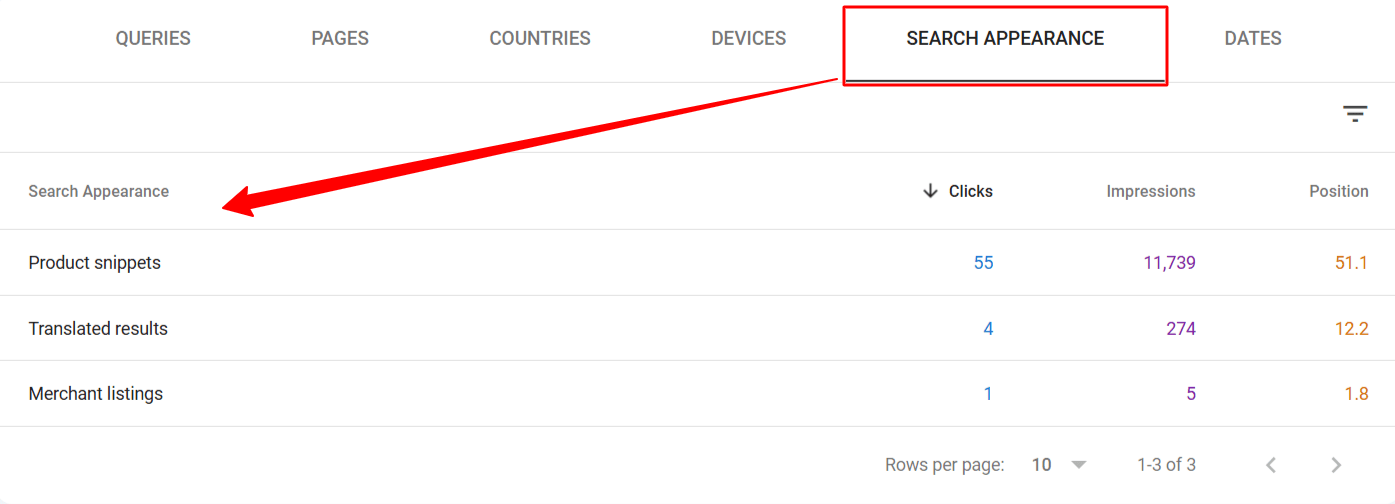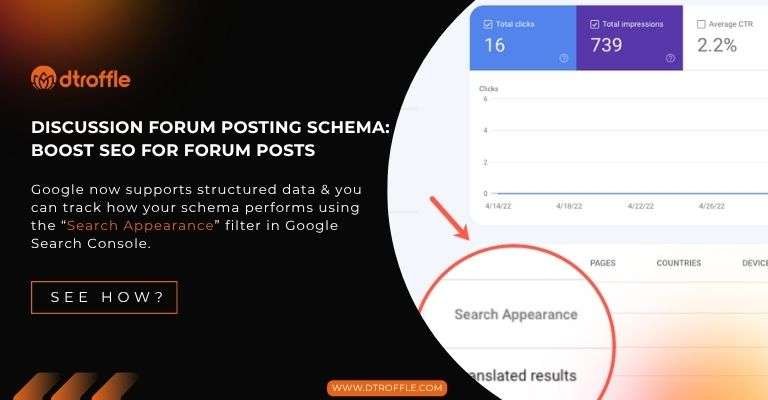Google now supports structured data for forums through the DiscussionForumPosting schema, enabling websites with discussion-style content to appear in rich results like “Discussions and forums” in Search. This guide covers what it is, why it matters, who should use it (and who shouldn’t), and how to measure its impact in Google Search Console.
Official Source: Google’s Guide to DiscussionForumPosting Schema
What is DiscussionForumPosting Schema?
DiscussionForumPosting is a type of structured data markup defined by Schema.org that helps search engines understand the structure of forum-style pages, such as threads, original posts, and user replies.
It lets Google clearly identify:
- The main topic (thread)
- Original post (content + media)
- Author and publication date
- Comments/replies and user interaction (likes, views)
This schema is especially useful for community forums, discussion boards, niche Q&A hubs, and social communities.
Why Google Supports It?
Google is continuously evolving to show more helpful, authentic content in search. With its “Helpful Content” updates and the rise of AI-driven search (SGE), Google needs structured data to:
- Better understand and organize discussions
- Surface user-generated content from niche communities
- Display richer, more interactive snippets in SERPs
- Improve the quality and relevance of forum-related results
That’s why it introduced support for DiscussionForumPosting, to help Google:
- Parse threaded conversations
- Attribute replies to users
- Include interaction stats like likes, comments, and shares
Benefits of Using DiscussionForumPosting Schema
Implementing this schema offers the following SEO and UX advantages:
| Benefit | Description |
| Rich results eligibility | Appear in Google’s “Discussions and forums” section |
| Higher CTR | Enhanced listings with titles, replies, authors, etc. |
| Improved indexing | Google understands your content structure better |
| Search Console visibility | See performance by “Search Appearance” type |
| Future-proofing | Supports AI-powered results like Google SGE |
Sample JSON-LD Schema Example
Here’s a simplified version of how DiscussionForumPosting might look on a real forum post:
| { “@context”: “https://schema.org”, “@type”: “DiscussionForumPosting”, “headline”: “Best Tools for SEO in 2025”, “text”: “Here are my top 5 SEO tools for 2025…”, “datePublished”: “2025-07-09T08:00:00+05:30”, “author”: { “@type”: “Person”, “name”: “John SEO”, “url”: “https://example.com/users/john-seo” }, “url”: “https://example.com/forum/seo-tools-2025”, “comment”: [ { “@type”: “Comment”, “text”: “I agree, Surfer SEO is still underrated!”, “datePublished”: “2025-07-09T10:15:00+05:30”, “author”: { “@type”: “Person”, “name”: “MarketingNinja” } } ] } |
When Not to Use DiscussionForumPosting Schema
This schema is not suitable for:
| Don’t Use On | Use This Instead |
| Blog posts | BlogPosting |
| Editorial articles | Article |
| Q&A-style forums | QAPage, Question, Answer |
| Product reviews | Review, Product |
| Static service pages | WebPage, Organization, LocalBusiness |
For example, a digital marketing agency like dtroffle.com should use:
- Organization for the homepage
- BlogPosting for blogs
- FAQPage for FAQs
- Service for service landing pages
Unless you create a community or forum section, adding DiscussionForumPosting markup is inappropriate and may violate Google’s structured data guidelines.
Search Appearance in Google Search Console
Once implemented, you can track how your schema performs using the “Search Appearance” filter in Google Search Console. You’ll see data like:

| Search Appearance | Clicks | Impressions | Avg. Position |
| Discussions and forums | 65 | 9,240 | 14.2 |
| Product snippets | 55 | 11,739 | 51.1 |
| FAQ rich results | 120 | 18,204 | 9.6 |
This helps you:
- Measure visibility from forum threads
- Compare against other schema types
- Spot missing or poorly-performing markup
Common Mistakes to Avoid
- Using DiscussionForumPosting on service or blog pages
- Leaving out required fields like author, datePublished, or text
- Nesting comments incorrectly (they must follow page structure)
- Failing to revalidate with Rich Results Test
Validate your structured data with Google’s tool to ensure accuracy.
Can Non-Forum Sites Still Leverage This?
Yes, but only if they launch a true community section or forum where users post and reply to topics.
Example:
A digital agency like Dtroffle could create a “Marketing Help Desk” where:
- Visitors post SEO, PPC, or content marketing questions
- Experts or community members reply
- The threads use DiscussionForumPosting schema
This strategy helps:
- Capture long-tail traffic
- Build authority
- Generate content at scale
- Boost SEO with user-generated discussions
Final Thoughts
DiscussionForumPosting schema is a powerful tool, but only if used correctly. It’s part of Google’s push toward showcasing user-driven, helpful content in a structured and readable format.
If you own or manage a forum, this is a must-implement. If not, consider how adding a community section might future-proof your content strategy.
Official Reference
FAQs: Discussion Forum Posting Schema
Q. What is a Discussion Forum Posting schema?
Answer: DiscussionForumPosting is a structured data type defined by Schema.org, used to mark up forum-style posts and threads. It helps search engines understand the structure of discussions, including the original post, comments, author details, and interactions like likes and replies. This allows forum content to appear in Google’s “Discussions and forums” search results.
Q. How does DiscussionForumPosting schema help with SEO?
Answer: It improves SEO by making forum pages eligible for rich results in Google Search. These results include enhanced listings with thread titles, author names, replies, and other engagement metrics. This can lead to higher visibility, improved click-through rates (CTR), and better user engagement through structured presentation in search results.
Q. Where should I use DiscussionForumPosting structured data?
Answer: You should use it on pages that represent user-generated discussion threads, such as:
- Forum topic pages
- Community discussions
- Comment threads with multiple replies
Do not use it on blogs, product reviews, or Q&A pages. For those, use schema types like BlogPosting, Review, or QAPage.
Q. What’s the difference between DiscussionForumPosting and QAPage schema?
Answer:
- DiscussionForumPosting is for general forum discussions, where the content is conversational or opinion-based.
- QAPage is for question-and-answer formats, where users post questions and receive definitive answers (like Stack Overflow or Quora).
Q. Can I use DiscussionForumPosting on a regular website or blog?
Answer: No, it’s not suitable for regular blogs or service websites. Unless your website includes a forum or community discussion section, you should use other schema types like BlogPosting, FAQPage, or Organization. Misusing DiscussionForumPosting on non-forum pages can result in structured data errors or be ignored by Google.
Q. How do I test if my DiscussionForumPosting schema is working?
Answer: Use Google’s Rich Results Test to validate your schema implementation. You can also monitor performance in Google Search Console under the “Search Appearance” report, where you’ll see impressions, clicks, and position data specifically for “Discussions and forums” if implemented correctly.
Q. What are the required fields in DiscussionForumPosting schema?
Answer: To make your markup eligible, you must include:
- @type: “DiscussionForumPosting”
- headline: Title of the discussion
- text, image, or video: At least one form of content
- author: With name (and optionally url)
- datePublished: In ISO 8601 format
Optional but recommended fields include comment, interactionStatistic, dateModified, and sharedContent.
Q. Can I use DiscussionForumPosting with WordPress?
Answer: Yes, but only if your WordPress site includes a forum or community plugin (like bbPress or BuddyBoss). You can use plugins or custom code to inject DiscussionForumPosting schema into your forum threads. For regular posts or pages, use Blog Posting or Article instead.




